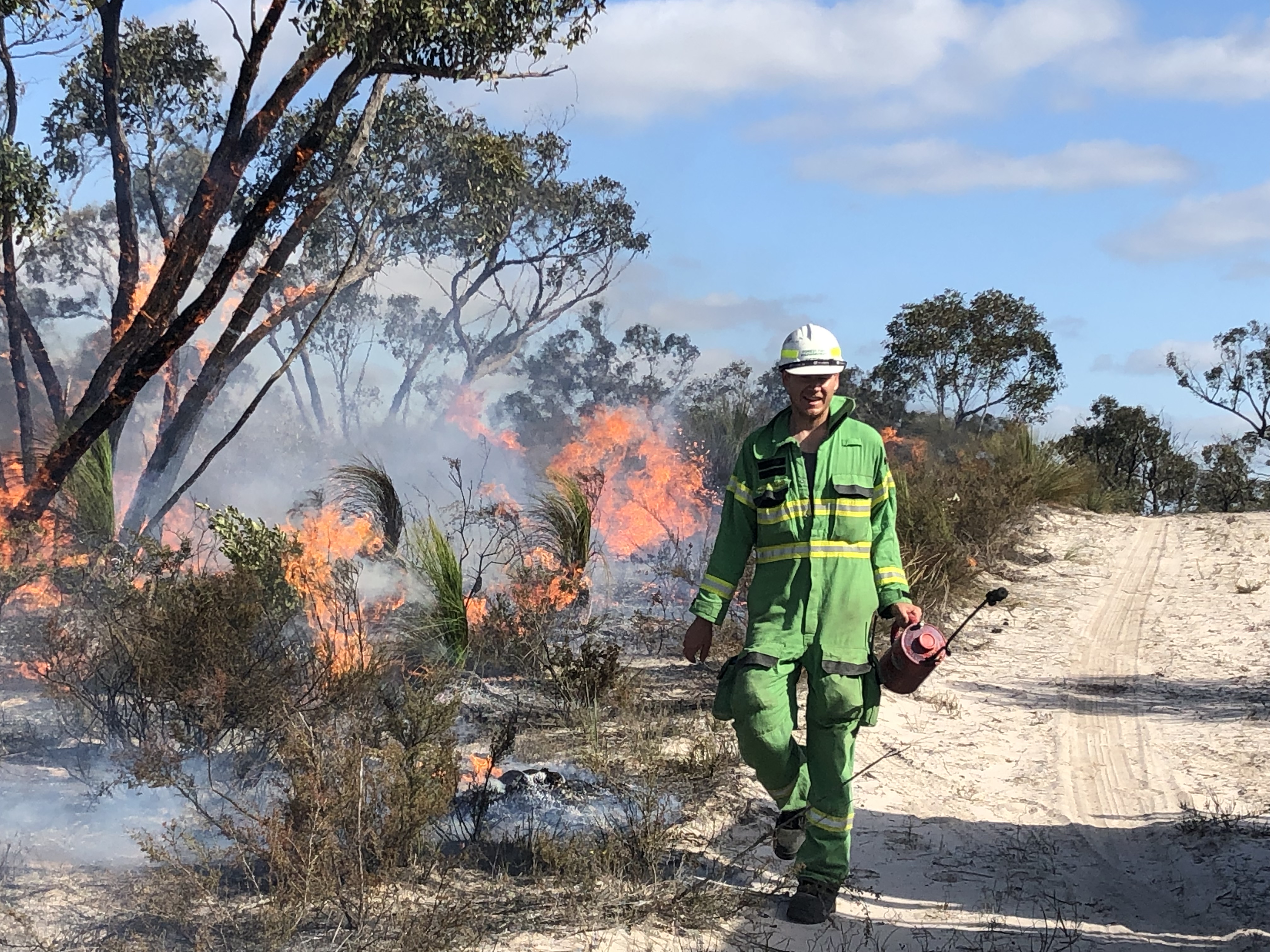Monitoring, evaluation, and reporting (MER) allows land managers to quantify the efficiency and effectiveness of their management strategies. This allows us to report on management outcomes to the government and community.
MER supports continuous improvement through evidence-based decision making and is a key component of a more strategic and outcomes-focused approach to bushfire management.
We continue to work with Parks Victoria and research institutions (such as the Arthur Rylah Institute and Universities) to review and monitor progress. This is being done through a statewide fire monitoring program.
Victoria’s Bushfire Risk Management Report 2021-22 (VBRMR) is now available from the Office of Bushfire Risk Management (OBRM). The report replaces the former Fuel Management Report delivered by FFMVic. The VBRMR reports on bushfire risk management activities on public and private land, including assurance.
Framework
DELWP has prepared a framework to provide guidance on how to monitor, evaluate and report on the effectiveness of the planned burn program.
Effectiveness is measured against the primary objectives for bushfire management in the Code of practice for bushfire management on public land.
Monitoring, Evaluation and Reporting Framework for Bushfire Management on Public Land (PDF, 1.3 MB)
Evaluation
Learnings from evaluation will be used to improve how bushfire management is used to:
- reduce the impact of major bushfires and to maintain or improve ecological resilience
- refine and test management models used to support decision making
- improve bushfire management planning, strategies and actions.
Reporting
Findings from monitoring and evaluation are used to inform government, partner agencies and the community about outcomes of bushfire management. Risk management activities on public land were previously captured in the annual Fuel Management Report. However, with effect from the 2021-22 fire season, OBRM has responsibility for these reports and will report on activities across public and private land.
Code of practice for bushfire management on public land
Our fire management activities are governed by the Code of practice for bushfire management on public land.
- Code of Practice for Bushfire Management on Public Land (PDF, 715.9 KB)
- Code of Practice for Bushfire Management on Public Land (DOCX, 2.5 MB)
Importantly, the code sets out our two primary objectives for managing fire on public land:
- To minimise the impact of major bushfires on human life, communities, essential and community infrastructure, industries, the economy and the environment. Human life will be afforded priority over all other considerations.
- To maintain or improve the resilience of natural ecosystems and their ability to deliver services such as biodiversity, water, carbon storage and forest products.
The code outlines what the department will consider or do on public land to achieve bushfire management outcomes and objectives. It does not prescribe the operational detail for how the department will achieve these goals. That detail will be specified in bushfire management manuals and guidelines, which will be publicly available and consistent with the code.
The code is divided into seven major sections:
- risk-based bushfire management and planning
- prevention
- preparedness
- fuel management (including planned burning)
- response
- recovery, and
- monitoring, evaluation and reporting
Other reports
This is the Inspector-General for Emergency Management’s (IGEM’s) third report on planned burns that breach control lines and incorporates implementation monitoring of recommendations associated with bushfire fuel management.
In this report, IGEM details the one breach that occurred during the reporting period and provides a progress update on 6 recommendations made in its previous report Summary of investigations into Department of Environment, Land, Water and Planning breaches of planned burn control lines 2016–17.
This report also includes an update on the implementation progress of the final 2 recommendations from the Independent Investigation of the Lancefield-Cobaw Fire, which concludes IGEM’s monitoring and reporting of these 22 recommendations.
Read the full report here:
Summary of DELWP bushfire fuel management 2017-18 report.
Inspector-General for Emergency Management (IGEM) has released a fourth report reviewing breaches of planned burn control lines.
The report provides a review of three planned burn breach of control lines that occurred in 2018-19. IGEM has made four findings, one recommendation and one observation based on the information provided in the FFMVic investigation reports. An update of implementation of six recommendations from the IGEM 2016-17 is also noted. The report is to inform and strengthen FFMVic’s planning and assessment of the risk of planned burns breaching control lines and foster continuous improvement.
Read the full report here:
Assurance of DELWP breaches of planned burn control lines 2018–19.
The Inspector-General for Emergency Management (IGEM) has released a fifth report reviewing the planned burn control line breaches.
No breaches of the control line that required reporting to IGEM occurred in 2019-20, the first time since IGEM commenced its monitoring function in January 2016.
The report provides an update on implementing recommendations from the IGEM 2016-17 and the 2018-19 reports.
The report also provides a synopsis of the IGEM review of planned burn breaches of the control line that have occurred over the past five years. IGEM notes that it has observed significant improvements in DELWP’s planning, assessment, approval and conduct of planned burns. Issues that were once prevalent – such as administrative error and approval oversight – are now rarely observed. IGEM also observed positive improvement in DELWP's approach to the way it evaluates outcomes.
Read the full report here:
Assurance of DELWP breaches of planned burn control lines 2019–20.
Page last updated: 27/11/23
